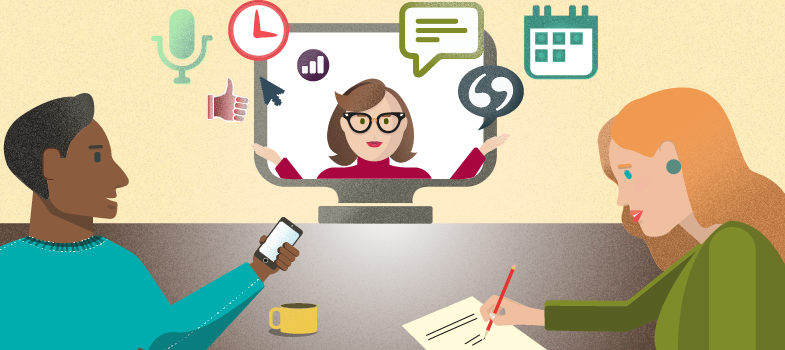Resources
Action Fraud [Tip: hold Ctrl and click a link to open it in a new tab. (Hide tip)] : report cyber crime to the police.
Dell Technologies: ‘What are the different types of viruses, spyware and malware that can infect my computer?’.
DigitalLearn.org: ‘Internet privacy: searching and visiting sites’ (online course).
GOV.UK: ‘The Data Protection Act 2018’.
Information Commissioners Office: ‘Guide to the General Data Protection Regulation (GDPR)’.
OpenLearn: Introduction to cyber security: stay safe online (online course).
Police Scotland: ‘Romance fraud’.
PCMag UK: ‘The best antivirus protection for 2020’.
WebMed Pharmacy: ‘Are you buying fake medicines online?’
Text
- Structured text document – for use with assistive technology (Word document)
- Structured text document – for use with assistive technology (PDF)
- HTML
- Text in braille
- Text in large print
Audio and video
Languages
- Plik dźwiękowy po polsku (Polish Audio)
- Tekst polski (Polish Text)
- 普通话音频 (Simplified Chinese Audio)
- 简体中文文本 (Simplified Chinese Text)
- التسجيل الصوتي بالعربية (Arabic Audio)
- النص بالعربية (Arabic Text)
- ਪੰਜਾਬੀ ਆਡੀਓ (Punjabi Audio)
- ਪੰਜਾਬੀ ਟੈਕਸਟ (Punjabi Text)
- ਪੰਜਾਬੀ ਆਡੀਓ (Urdu Audio)
- اردو ٹیکسٹ (Urdu Text)
- Audio în limba română (Romanian Audio)
- Text în limba română (Romanian Text)
Lesson 5: Summary
